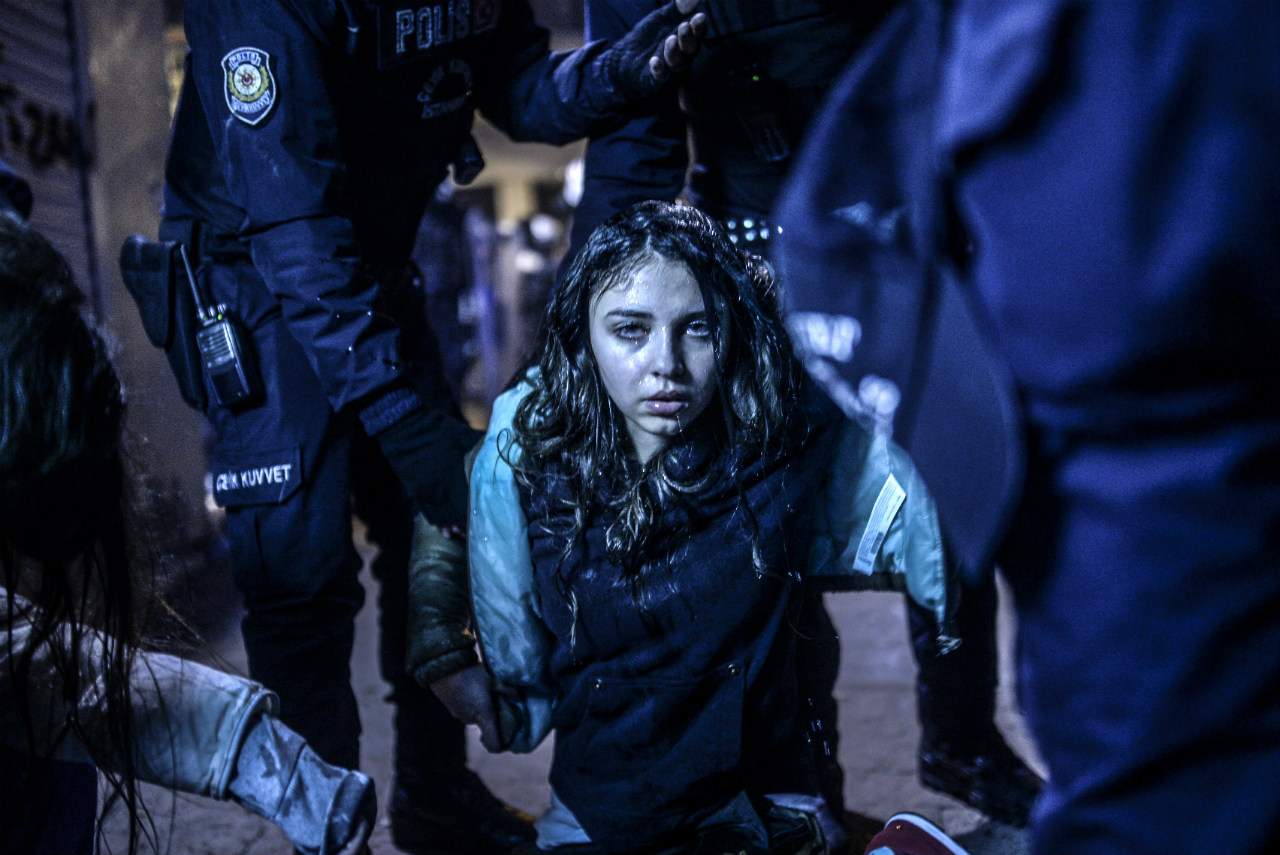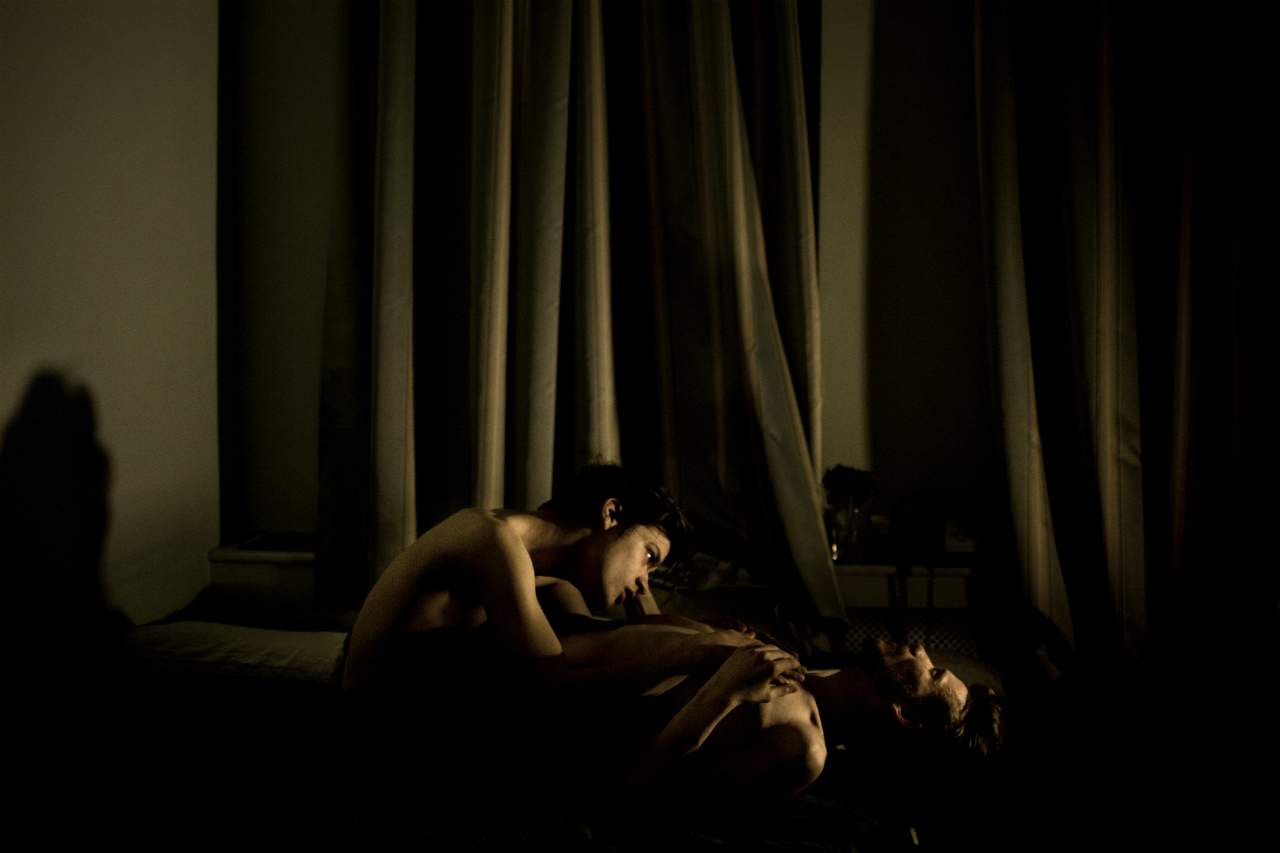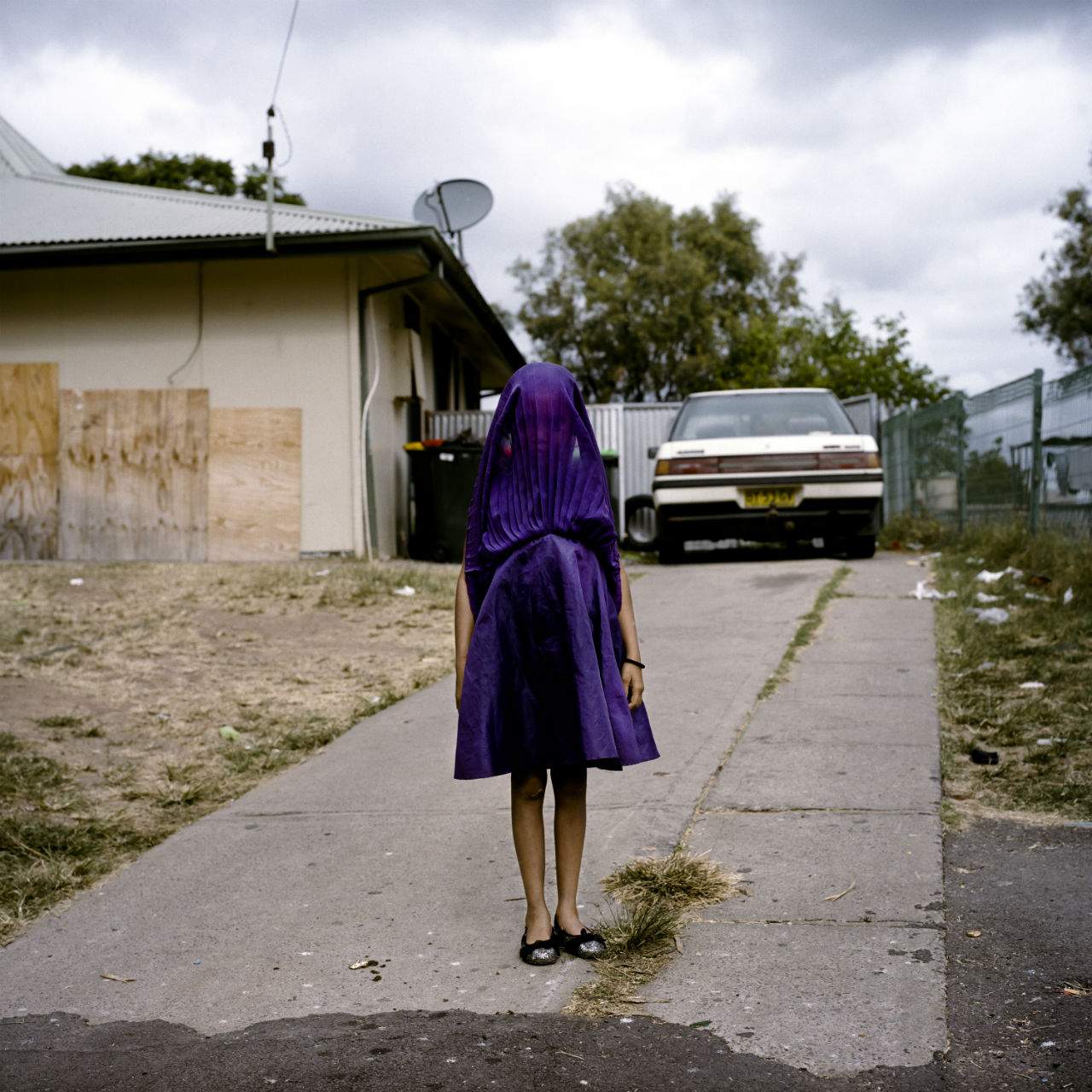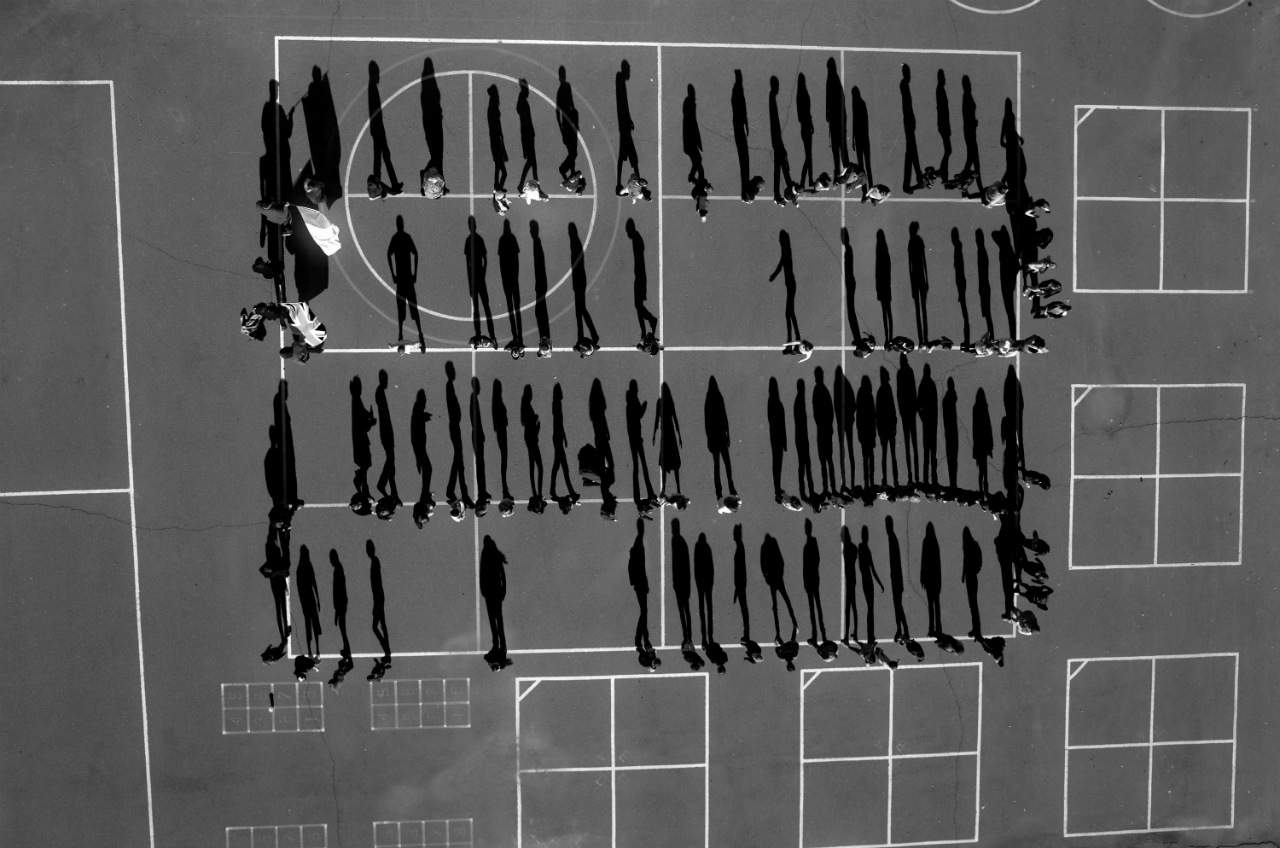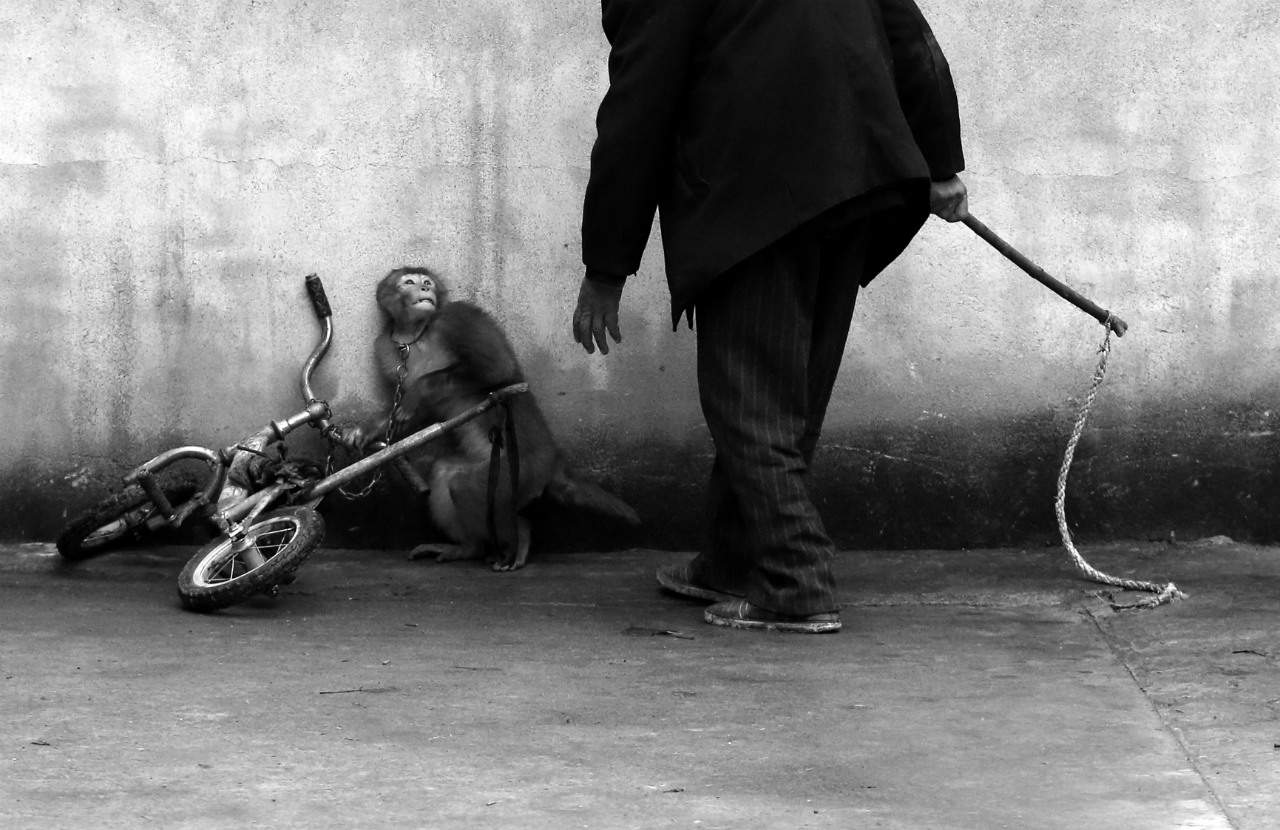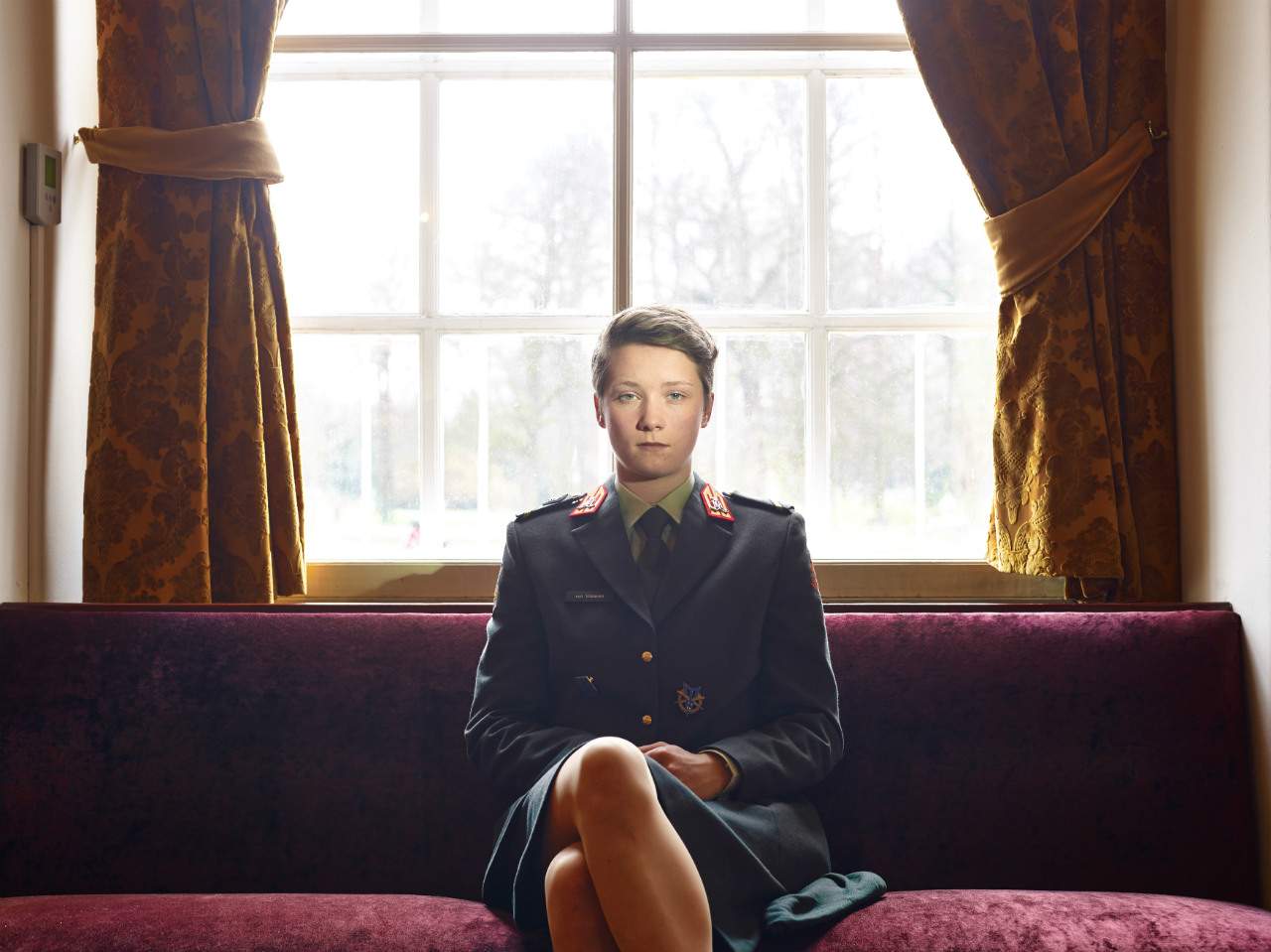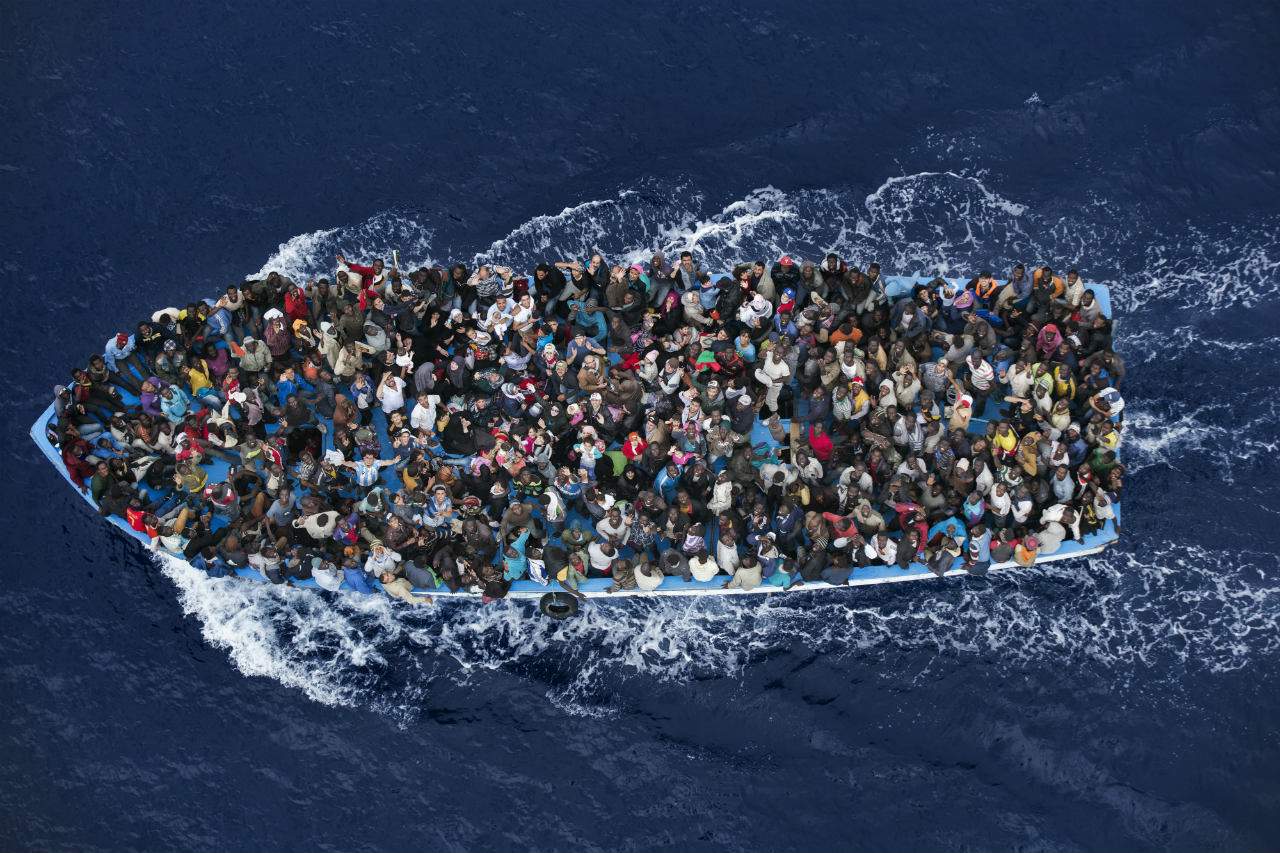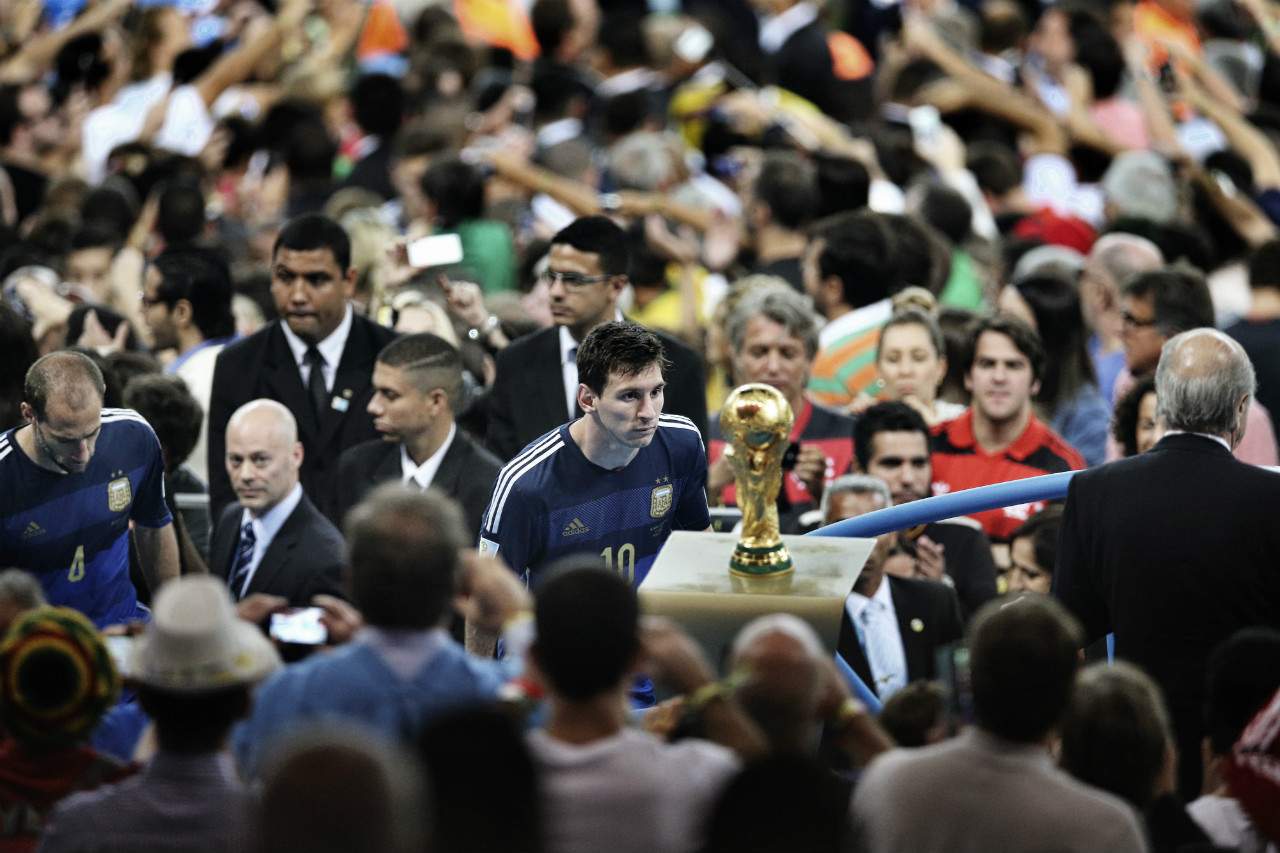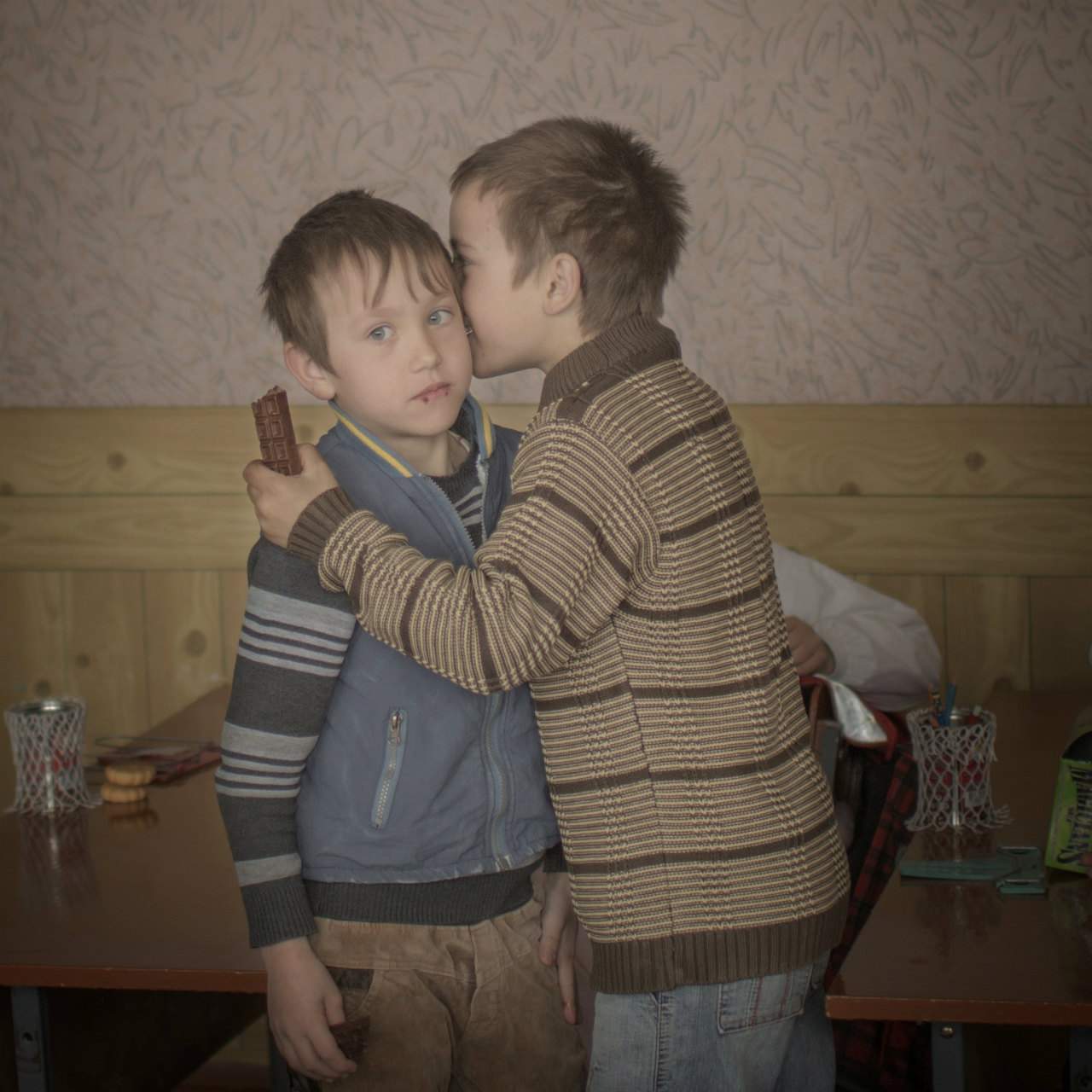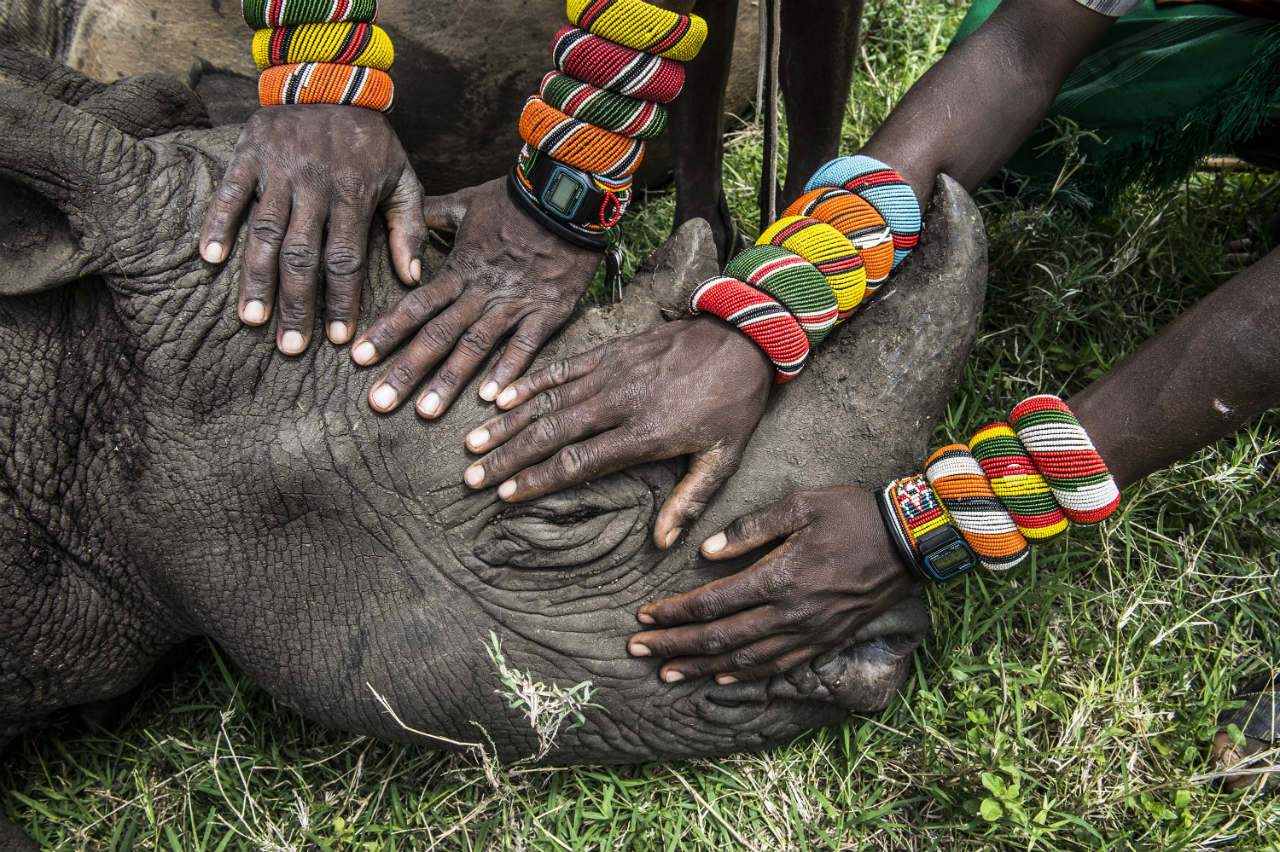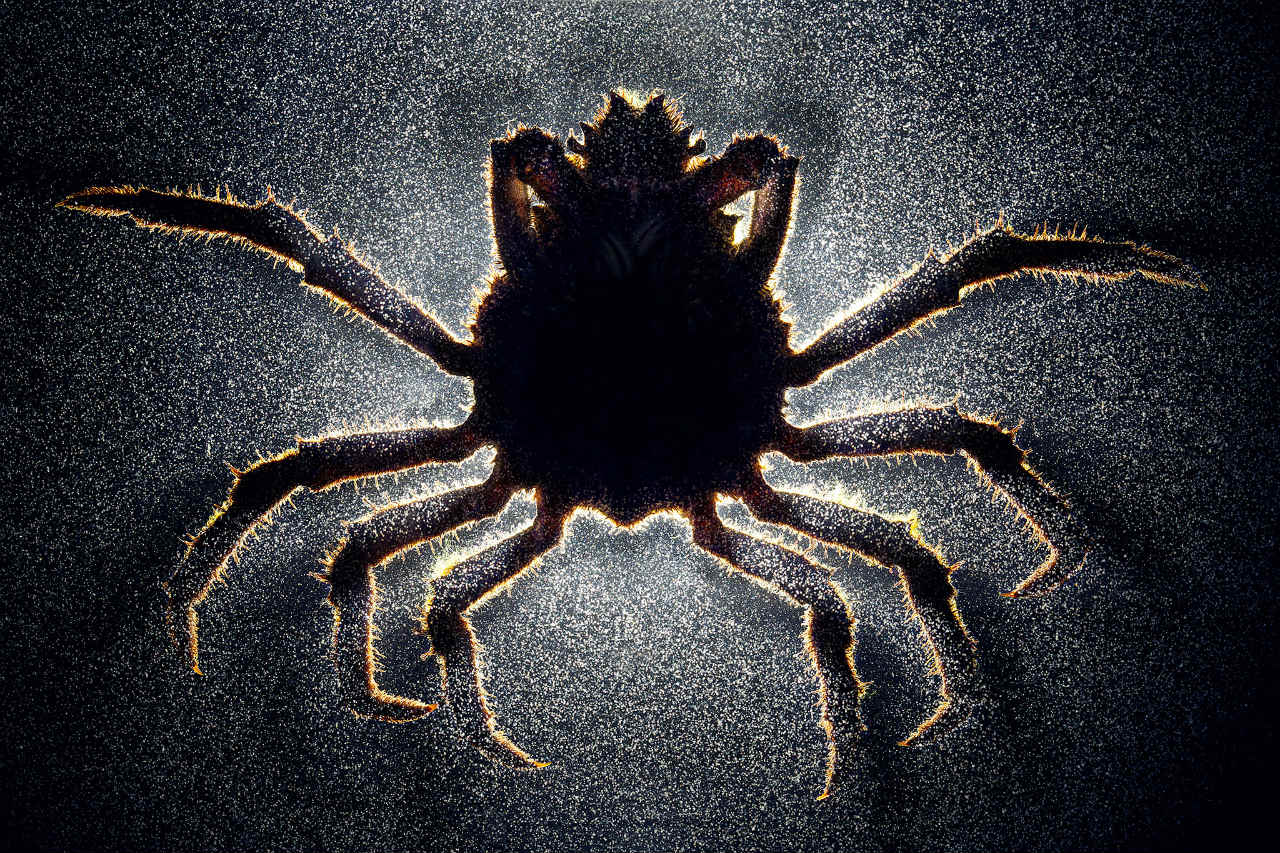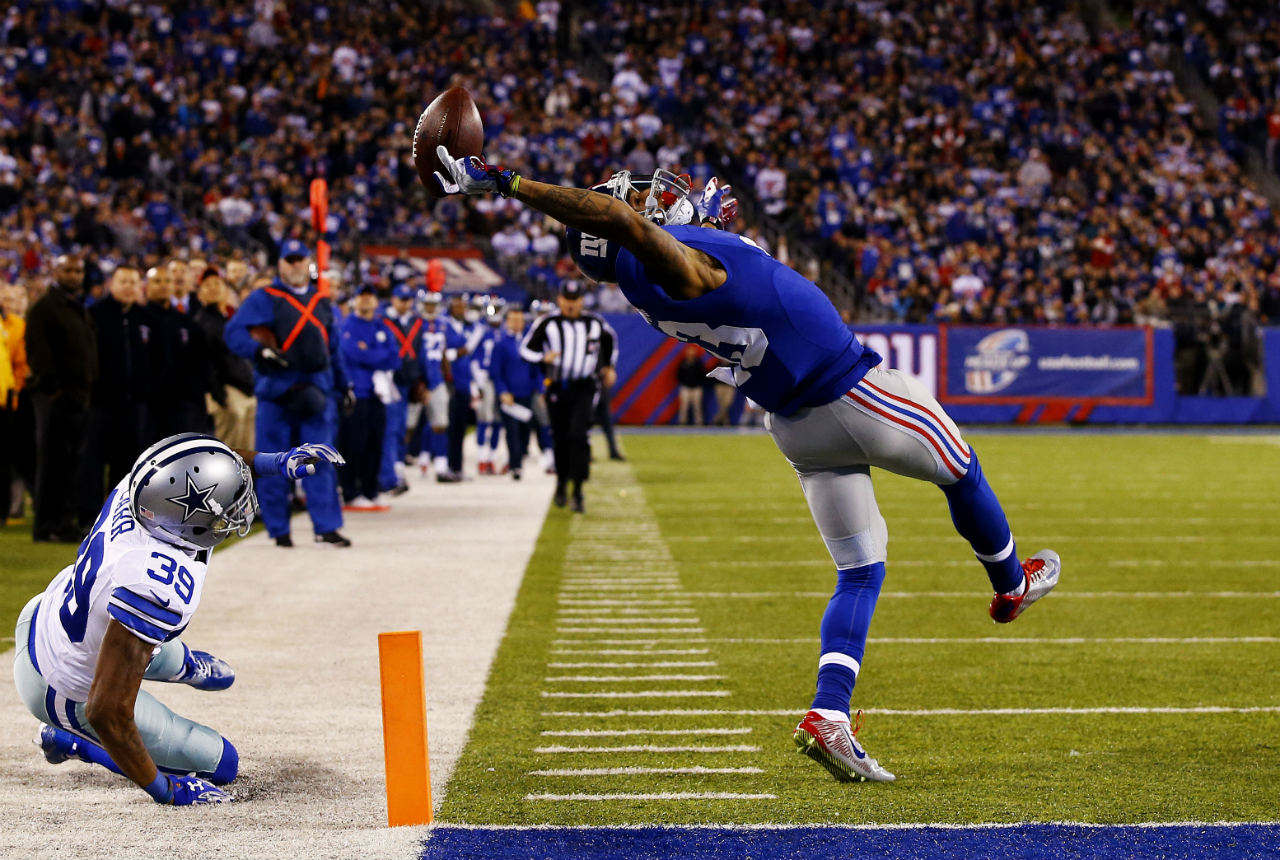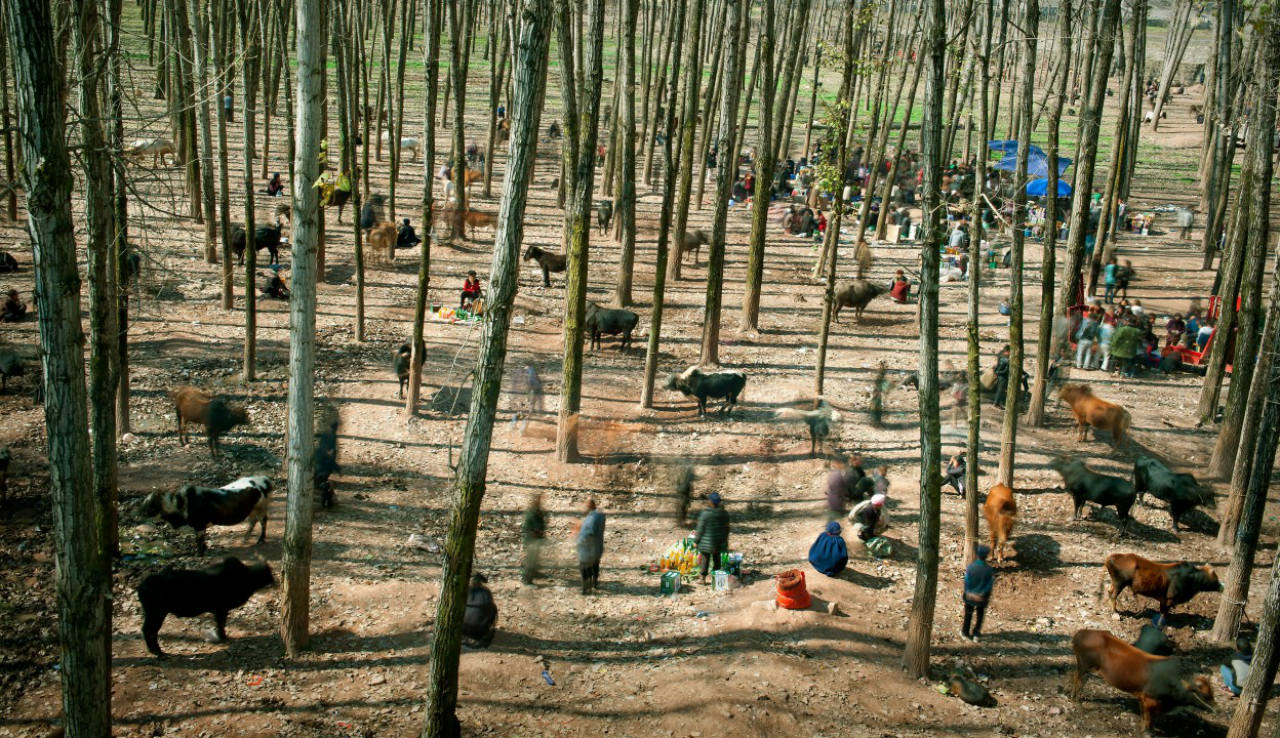See the Eye-Opening Pictures from the 2015 World Press Photo Contest
The world's best photojournalism is about to hit Australia for another year.
It's the yearly exhibition that leaves us with jaws on the floor; the 59th annual World Press Photo exhibition is coming to Australia for another year. Beating 97,912 submissions by 5692 photographers from 131 countries, Denmark's Mads Nissen took out the top spot for 2014 Photo of the Year for his intimate, poignant portrait of Jon and Alex, a gay couple in conservative St Petersburg, Russia. After almost six decades of beautiful and devastating photojournalism, the WPP contest continues to be one of the world's most important platforms for art, journalism and humanising the headlines.
The World Press Photo exhibition can be seen at Sydney’s State Library of NSW, May 23 - June 21; WA Museum in Perth, July 4 - 26; and Brisbane Powerhouse, August 8 - 30. Before the exhibition makes its way to Australia, take a look through some of the landmark images that caught the eye of the WPP judges; from an orphaned rhino in Kenya to Lionel Messi at Brazil's World Cup, Istanbul's anti-government protests to a young Kamilaroi girl in Moree, New South Wales. With many of the photographs documenting the more saddening news headlines, they're often not easy images to look at, but it's the work of these photojournalists that wakes up an otherwise ignorant world.
Jon and Alex (St Petersburg, Russia) — Mads Nissen
2014 Photo of the Year and First Prize Contemporary Issues, Singles
"Jon and Alex, a gay couple, share an intimate moment at Alex’s home, a small apartment in St Petersburg, Russia. Life for lesbian, gay, bisexual and transgender (LGBT) people is becoming increasingly difficult in Russia. Sexual minorities face legal and social discrimination, harassment, and even violent hate-crime attacks from conservative religious and nationalistic groups."
Istanbul Protest (Istanbul, Turkey) — Bülent Kiliç
First Prize Spot News, Singles
"A young girl was wounded during clashes between riot police and protestors after the funeral of Berkin Elvan, a 15-year-old boy who died from injuries suffered during anti-government protests. Riot police fired tear gas and water cannons at protestors in the capital Ankara, while in Istanbul, crowds shouting anti-government slogans lit a huge fire as they made their way to a cemetery for the boy’s burial."
Laurinda (Moree, New South Wales, Australia) — Raphaela Rosella
First Prize Portraits, Singles
"Laurinda, a young Kamilaroi girl, plays with her dress as she waits for the bus that will take her to Sunday school. Many disadvantaged communities in Australia face entrenched poverty, racism, trans-generational trauma, violence, addiction, and a range of other barriers to health and wellbeing."
Monkey Training for a Circus (Suzhou, Anhui Province, China) — Yongzhi Chu
First Prize Nature, Singles
"A rhesus macaque cowers as its trainer approaches, while training for a circus act, in Suzhou, eastern China. Performing animals in circuses and zoos are enormously popular in China. After years of pressure from animal-welfare groups, the Chinese government has banned animal circuses, and implemented regulations to stop abuse at state-owned zoos, but many trainers say they have not heard of the ban, nor have any intention of stopping. Authorities in Suzhou, which with its 300 troupes is known as the hometown of circus in China, have announced plans for developing alternative circus entertainment, without performing animals."
The Final Game (Rio de Janeiro, Brazil) — Bao Tailiang
First Prize Sports, Singles
"Argentina player Lionel Messi faces the World Cup trophy during the final ceremony at Maracana Stadium. His team lost to Germany 1-0, after a goal by Mario Götze in extra time."
Mindsuckers (Santa Barbara, California, USA) — Anand Varma
First Prize Nature, Stories
"When a male sheep crab (Loxorhynchus grandis) is infected by Heterosaccus californicus, a parasitic barnacle, it stops developing fighting claws, and its abdomen widens, providing a womb for the barnacle to fill with its brood pouch. Nurtured by the crab, the eggs hatch. Thousands of baby barnacles disperse to infect anew. Many parasites not only feed off their hosts, but appear to manipulate the host’s behavior in a way that is advantageous to the parasite’s life cycle."
The Beckham Catch (East Rutherford, New Jersey, USA) — Al Bello
Second Prize Sports, Singles
"Odell Beckham (#13) of the New York Giants makes a one-handed touchdown catch in the second quarter against the Dallas Cowboys at MetLife Stadium."
Blue Sky Days (Philadelphia, Pennsylvania, USA) — Tomas van Houtryve
Third Prize Contemporary Issues, Stories
"People exercising in central Philadelphia. Drone operators may consider such ‘signature behaviors’ as evidence of the existence of a training camp. Since 2002, the United States has used unmanned aerial vehicles (UAVs, or drones) to collect intelligence and carry out airstrikes in Pakistan, Yemen and Somalia. The aircraft are guided via satellite by distant operators. The attacks have resulted in a large number of fatalities, including hundreds of civilians. The photographer bought a small drone, fitted it with a camera, and flew it in the US over the sorts of gatherings that have become habitual targets for airstrikes abroad—weddings, funerals, groups of people praying or exercising. He also used it to photograph settings in which drones are used to less lethal effect, such as oil fields, prisons, and the US-Mexico border."
Orphaned Rhino (Kenya) — Ami Vitale
Second Prize Nature, Singles
"A group of young Samburu warriors touch a black rhino for the first time in their lives, at the Lewa Wildlife Conservancy, in northern Kenya. Black rhinos are almost extinct in Kenya. This young calf had been orphaned when poachers killed its mother, and was hand-raised at Lewa. Most people in Kenya never get the opportunity to see the wildlife living around them, especially at such close quarters. Attention is often given to the effect of poaching on wildlife, but there is little focus on indigenous communities, who are on the frontline in the clash between poachers and armed game wardens.
Birthday Chocolate (Baroncea, Moldova) — Åsa Sjöström
Second Prize Daily Life, Singles
"Igor whispers into his friend Renat’s ear, at school in northern Moldova. It is Igor’s birthday, and his grandmother has given him chocolate to hand out to his classmates. Moldova is Europe’s poorest country. In the past ten years, one third of the working population has gone abroad in search of better-paying jobs. Children often find themselves looked after by elderly relatives, or left in orphanage boarding schools. Igor has a twin brother. They do not know their father and their mother died soon after leaving to work in Russia, when they were two years old."
Cadets (Koninklijke Militaire Academie (Royal Military Academy, Breda, the Netherlands) — Paolo Verzone
Third Prize Portraits, Stories
"Portraits of cadets in some of Europe’s most prestigious military academies."
Rescue Operation (Mediterranean Sea, Italy) — Massimo Sestini
Second Prize General News, Single
"Refugees crowd on board a boat some 25 kilometers from the Libyan coast, prior to being rescued by an Italian naval frigate working as part of Operation Mare Nostrum (OMN). The search-and-rescue operation was put in place by the Italian government, in response to the drowning of hundreds of migrants off the island of Lampedusa at the end of 2013. The numbers of people risking their lives to cross the Mediterranean Sea rose sharply in 2014, as a result of conflicts or persecution in Syria, the Horn of Africa, and other sub-Saharan countries. OMN involved the Italian Red Cross, Save the Children, and other NGOs in an effort not only to rescue lives, but to provide medical help, counseling, and cultural support. Naval officers were also empowered to arrest human traffickers and seize their ships. In its one year of operation, OMN brought 330 smugglers to justice, and saved more than 150,000 people, at least a quarter of which were refugees from Syria. The operation was disbanded in October, and replaced by Triton, an operation conducted by the EU border agency Frontex, focusing more on surveillance than rescue."
The Bull Market (Niuniuba, Sichuan, China) — Cai Sheng Xiang
First Prize Daily Life, Singles
"Yi villagers hold a cattle market in a forest outside the town of Niuniuba, near Liangshan, in Sichuan. The Yi ethnic minority live largely by agriculture, livestock herding and hunting. There are around 7.5 million Yi in China, concentrated principally in Sichuan and Yunnan provinces."
The 59th annual World Press Photo exhibition can be seen at Sydney's State Library of NSW, May 23 - June 21; Perth's WA Museum, July 4 - 26; and Brisbane Powerhouse, August 8 - 30.
Check out all the 2015 winners and runners up here.
